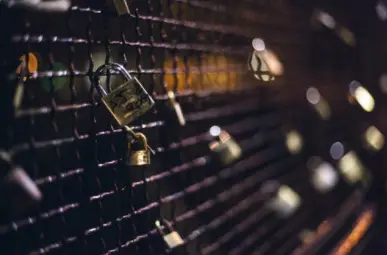What Handshake Method is Used When Connecting to a VPN?
VPNs are neat to have today in a world where we want to feel safe and secure on the internet. But not a lot of people really know how VPNs work especially when it comes to the encryption part of the process.
In that regard comes the handshake, which is an important part of how VPNs encrypt your connection. So, what handshake method is used when you are connecting to a VPN?
VPN service providers use RSA handshake, which occurs at the start of the encryption. RSA allows you to exchange encryption keys with your VPN in a safe and secure manner whenever you are attempting to connect to a VPN’s server. Because of this, you will be using different encryption keys every time you make a connection.
One of the main features of a VPN is the encryption process, which is how you are able to keep your connection safe and secure throughout the entire session.
But, for you to understand why the handshake is so important and why VPNs are amazing at securing your connection, you have to know more about how VPNs actually work.
How does a VPN connection work?
Virtual private networks or VPNs are private servers that will allow you to connect to the internet via the VPN provider’s secure servers instead of using your ISP’s servers.
As such, as you pass through the VPN’s servers, your connection gets encrypted so that your session stays as secure as possible.
The encryption process works by allowing you and the VPN to exchange encryption keys at the start. Encryption keys are randomly-generated data that is used by your VPN to encrypt and decrypt your connection. These keys are always unique every single time you connect to your VPN.
Encryption usually happens after the handshake between your connection and that of your VPN’s servers. This allows you to exchange encryption keys with your VPN every single time you start a secure connection with it. We will talk more about this later on.

After the handshake, the VPN now encrypts your data and your connection so that you will now be able to connect to the internet safely and securely.
There are other steps involved in the actual encryption but let us save that for another time as we are here to talk more about the handshake method used when you are connecting to the VPN.
What handshake method is used when connecting to a VPN
Now, going to the meat of things, the handshake method use, whenever you are connecting to a VPN, is the RSA method.
This happens at the start of the VPN connection wherein the RSA method allows your device to communicate with the VPN server so that they will exchange encryption keys. This will always happen at the start so that your encryption keys are always unique.
In general, during the handshake process of encrypting your connection, the following happens:
- Your device and the VPN generate and exchange encryption keys.
- There will be an agreement as to which protocol will be used during the encryption.
- The VPN selects the appropriate algorithm to be used for encryption.
- The connections get authenticated by using digital certificates.
The usual key strength during the RSA handshake is 2048-bit, which is already tough enough to crack. However, there are VPN providers that offer key strengths of up to 4096-bit, which is double the minimum required key strength in an RSA handshake.
As such, the encryption will be tougher to crack because of how the encryption key is stronger.
Is it possible to crack a VPN handshake?
To give you a quick idea of how hard it is to crack an RSA handshake, let us talk more about encryption keys, which are the randomly-generated string of bits that are used to make sure that your connection stays encrypted the entire time.
In short, these are the passwords that are needed by your VPN to encrypt and decrypt your connection.
When you are using an RSA handshake, the minimum strength required is an encryption key that is 2048-bit. If there are 1.1 x 1077 different possible combinations in 256-bit encryption, think of how many combinations there are in 2048-bit encryption.
In fact, it has been said that you need 300 trillion years just to crack that kind of encryption using a classical computer. If 2048-bit encryption is already tough enough to break, how much more is 4096-bit encryption.

However, just because it is tough to crack an RSA handshake it does not mean that doing so is impossible. In 2010, it was found that a group of researchers were able to use hundreds of classical computers to crack an RSA 768-bit encryption in two years.
While that was a decade ago and computers are more powerful today, experts now agree that 1024-bit encryption is no longer safe because of how it is quite possible for someone to be able to crack that encryption.
Nevertheless, 2048-bit encryptions are nearly impossible to crack with the connection that we have today. It has been said that only a perfect quantum computer can completely crack this encryption in a matter of seconds.
However, such a computer does not exist today and we are still far off from such a technology.
But you have to accept the fact that no password or encryption is uncrackable and we will come to a point later on in a time when computers are powerful enough to break any RSA encryption found on VPNs. However, such a technology is still non-existent today.
We can only assume safely that the type of encryption that an RSA handshake offers you whenever you are connecting to a VPN is nearly impossible to crack with the tech that we have now.

